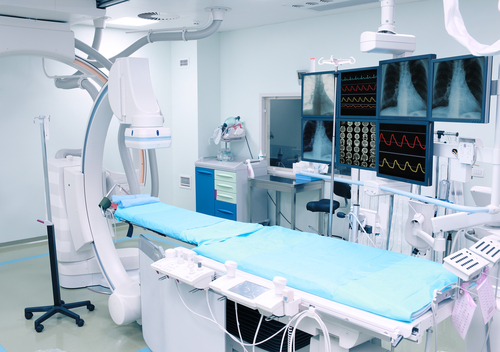Mistakes to avoid while starting a super speciality hospital
M3 India Newsdesk Jan 31, 2019
Setting up a super speciality hospital in India is not exactly a smooth experience and, if one is new, the mistakes are pretty common. There are many legal processes to go through and certain rules and regulations to follow.

Dr. Amar Kumar has been practising as a doctor for the past 46 years and is a Neurologist. He owns a hospital called the Bharath Cancer hospital in Mysore, which was started about 30 years back. The doctor spoke about the mistakes one can avoid while starting any super specialty hospital in terms of administration, licences, approvals, and hirings. Here is a list of a few common mistakes that doctors make and different ways in which they can be prevented.
- Possessing the right technology is an important aspect of running a super-speciality hospital. Requirements for your area of specialisation must be kept in mind while purchasing medical equipment, instruments, and tools. A proper space must be designated to store the equipment right from day one of opening the hospital. Software that can take care of appointments, medical records, reports and a lot more should be in place.
- Funds are necessary to ensure the hospital remains operational. Many make the mistake of investing more in the initial stage and taking a huge risk. To overcome this, one has to decide what the requirement is and cut down on unnecessary expenses. If you have taken a loan, try to predict how long it will take for you to pay it off, so that you can see if the hospital is financially viable.
- The hospital needs to be located within an easy reach to people and in a hygienic environment. Rent and agreements with the owner or the landlord must be settled. Also, there should be a proper supply of electricity and water. Permission must be taken from the local governing body to obtain electric meters and water supply.
- One must possess a licence under commercial law to run a private hospital. Hiring the wrong people will affect the hospital and its name. So, to prevent that one must make the background checks and also make it mandatory for all the staff. Checking their previous work experience and verifying if the staff are actually fit to serve help in the long run.
- Permission from the local board is a must for disposal of sewage waste. A well-planned sewage and drainage system is very important. Management and disposal of biomedical waste is essential and for this, incinerators need to be installed with the permission of the Municipal Corporation for their disposal.
- Patients must be aware of the hospital and the speciality so that they know where to come for diagnosis. A name board with the hospital timings must be placed in front of the hospital. Get listed online and make sure you update your online profile with photos and other clinic information to reach out to more people.
- Plan exactly when you want to open the hospital. If the landlord or insurance agent does not share your urgency, it might lead to unexpected delays in opening the hospital. Delays might also take place in getting licences from the government. One must be prepared to face these delays with a contingency plan.
- To open a hospital, one needs to be educated about various laws and regulations. A physician should note the provisions of different State Acts like Drugs and Cosmetics Act, Pharmacy Act, Narcotic Drugs and Psychotropic Substances Act, Medical Termination of Pregnancy Act, Transplantation of Human Organ Act, Drugs and Magic Remedies (Objectionable Advertisement) Act, Prenatal Sex Determination Test Act, Persons with Disabilities (Equal Opportunities and Full Participation) Act, Mental Health Act, Environmental Protection Act, and Bio-Medical Waste (Management and Handling) Rules, and other similar Acts.
- There are several regulations that must be followed and licensing for most of these are important. Few of them are listed below:
- Hospital building and installations: The hospital layout approval should be received from AERB (Atomic Energy Regulatory Board). A NOC for fire safety, lift safety, electricity installation, building occupancy, among others should be obtained.
- For medical professionals employed: Qualification and registration certificates of various professionals as per MCI (Medical Council of India), DCI (Dental Council of India), NCI (National Cancer Institute), AICTE (All India Council for Technical Education), RCI (Rehabilitation Council of India)and other councils.
- Environment protection: A NOC(No Objection Certificate) from the pollution control board is needed along with the approval to generate biomedical waste. Radiation protection certificate is another thing that is needed.
- For medical supplies: Drug sale licence, Excise permit for spirit, Diesel storage licence, NDPS (Narcotic Drugs and Psychotropic Substances Act) licence, licence for radioactive substances are must and should.
- Approval certificate: For all radiation-emitting equipment, Ambulance registration, Boiler certificate, Arms certificate, PNDT (Pre-Natal Diagnostic Techniques) registration of ultrasound are compulsory.
The application process for the licences can be followed through by writing to the authorities concerned and by providing all the necessary documents. After they are done examining it, they determine if the clinic is granted the licence or not. If one has been awarded a licence, a notification can be expected for confirmation. Sometimes after granting the licence, the authorities impose some conditions and restrictions
This story has been contributed by Amrutha G, a Bangalore-based freelance writer and a member of 101Reporters.com, a pan-India network of grassroots reporters.
-
Exclusive Write-ups & Webinars by KOLs
-
Daily Quiz by specialty
-
Paid Market Research Surveys
-
Case discussions, News & Journals' summaries